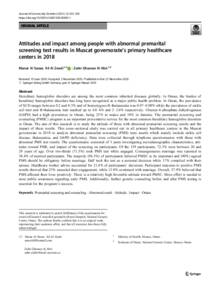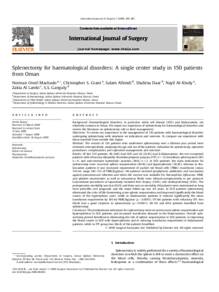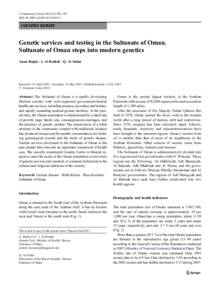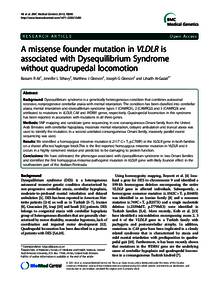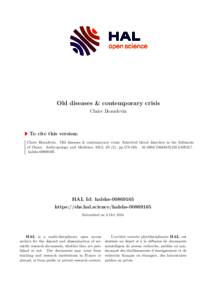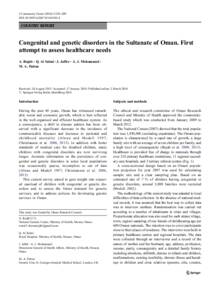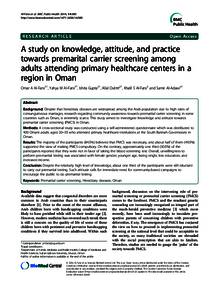وثيقة
Attitudes and impact among people with abnormal premarital screening test results in Muscat governorate’s primary healthcare centers in 2018.
المعرف
DOI: 10.1007/s12687-020-00493-1
المصدر
Journal of Community Genetics. v. 12, 1, p. 163-169
المساهمون
Al-Abri, Zahir Ghassan., مؤلف
الدولة
Germany.
مكان النشر
Berlin
الناشر
Springer Science and Business Media Deutschland GmbH.
ميلادي
2021-01-01
اللغة
الأنجليزية
الملخص الإنجليزي
Hereditary hemoglobin disorders are among the most common inherited diseases globally. In Oman, the burden of hereditary hemoglobin disorders has long been recognized as a major public health problem. In Oman, the prevalence of SCD ranges between 0.2 and 0.3% and of homozygous B-thalassemia was 0.07–0.08% while the prevalence of sickle cell trait and B-thalassemia trait reached up to 4.8–6% and 2–2.6% respectively. Glucose-6-phosphate dehydrogenase (G6PD) had a high prevalence in Oman, being 25% in males and 10% in females. The premarital screening and counseling (PMSC) program is an important preventative service for the most common hereditary hemoglobin disorders in Oman. The aim of this research is to study the attitude of those with abnormal premarital screening results and the impact of these results. This cross-sectional study was carried out in all primary healthcare centers in the Muscat governorate in 2018 to analyze abnormal premarital screening (PMS) tests results which mainly include sickle cell disease, thalassemia, and G6PD deficiency. Data were collected through telephone questionnaires with those with abnormal PMS test results. The questionnaire consisted of 3 parts investigating sociodemographic characteristics, attitudes toward PMS, and impact of the screening on participants. Of the 159 participants, 72.3% were between 20 and 29 years of age. Over two-thirds (71.5%) took PMS test while engaged. Consanguineous marriage was reported in 38.4% of married participants. The majority (94.3%) of participants believed PMSC to be important and (90%) agreed PMS should be obligatory before marriage. Half took the test as a personal decision while 17% complied with their spouse. Healthcare worker advice accounted for 21.4% of participants’ decisions. Participant response to positive PMS results showed that 23% canceled their engagement, while 13.8% continued with marriage. Overall, 57.9% believed that PMS affected their lives positively. There is a relatively high favorable attitude toward PMSC. More effort is needed to raise public awareness regarding early PMS. Additionally, further genetic counseling before and after PMS testing is essential for the program’s success.
ISSN
1868-310X
URL المصدر
قالب العنصر
مقالات الدوريات

